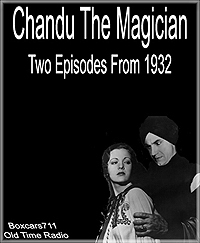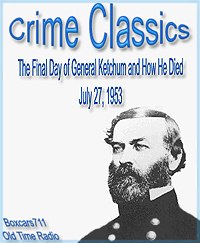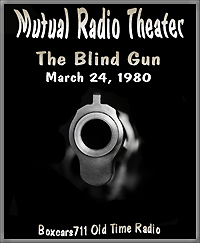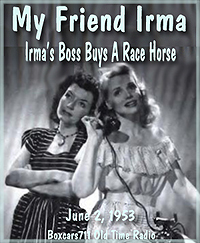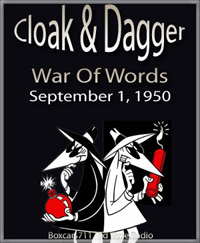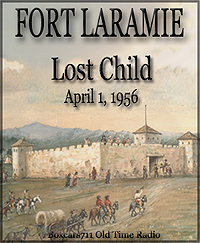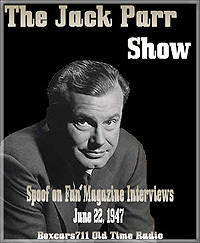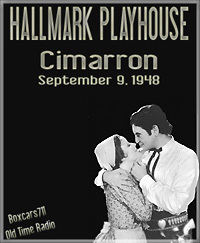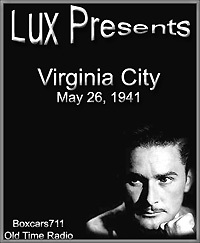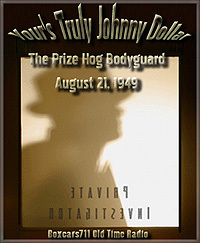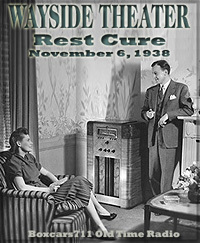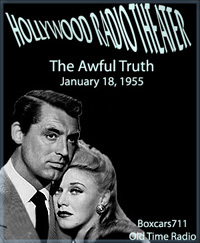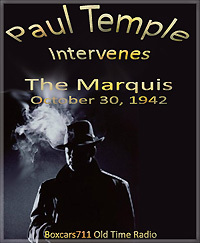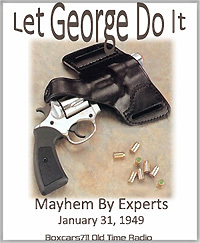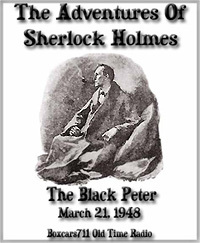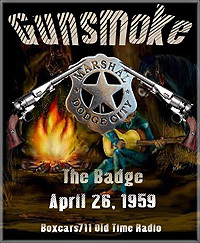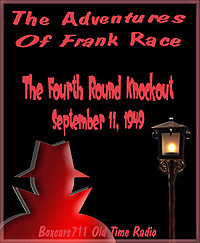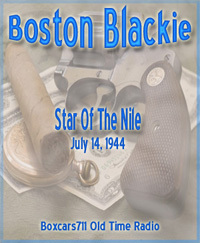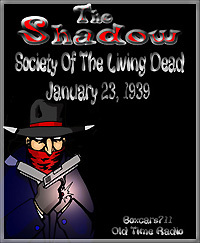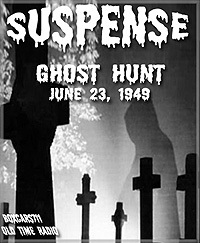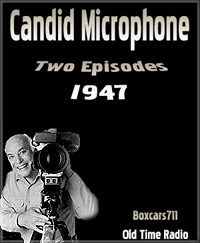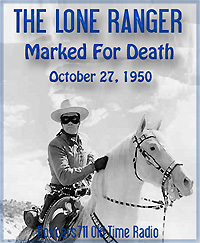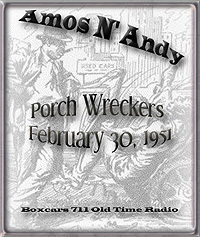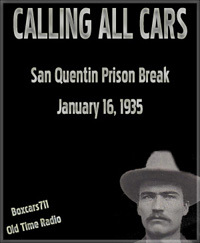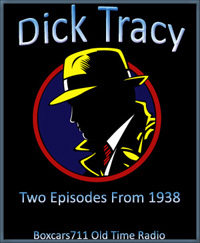
Episode071 "Mounties At Pitchblend" (04-11-38) and Episode072 "Snow Slide" (04-12-38)
Dick Tracy had a long run on radio, from 1934 weekdays on NBC's New England stations to the ABC network in 1948. Bob Burlen was the first radio Tracy in 1934, and others heard in the role during the 1930s and 1940s were Barry Thompson, Ned Wever and Matt Crowley. The early shows all had 15-minute episodes. On CBS, with Sterling Products as sponsor, the serial aired four times a week from February 4, 1935 to July 11, 1935, moving to Mutual from September 30, 1935 to March 24, 1937 with Bill McClintock doing the sound effects. NBC's weekday afternoon run from January 3, 1938 to April 28, 1939 had sound effects by Keene Crockett and was sponsored by Quaker Oats, which brought Dick Tracy into primetime (Saturdays at 7pm and, briefly, Mondays at 8pm) with 30-minute episodes from April 29, 1939 to September 30, 1939. The series returned to 15-minute episodes on the ABC Blue Network from March 15, 1943 to July 16, 1948, sponsored by Tootsie Rolls, which used the music theme of "Toot Toot, Tootsie" for its 30-minute Saturday ABC series from October 6, 1945 to June 1, 1946. Sound effects on ABC were supplied by Walt McDonough and Al Finelli. Directors of the series included Mitchell Grayson, Charles Powers and Bob White. Cast members at various times included Walter Kinsella as Pat Patton, Helen Lewis as Tess Trueheart and Andy Donnelly and Jackie Kelk as Junior Tracy. Announcers were Ed Herlihy and Dan Seymour.
TODAY'S SHOW:
April 11, 1938. NBC network. Sponsored by: Quaker Cereals. Not auditioned. The announcer mentions that the program is "electrically transcribed." It is therefore possible that even though the series was being broadcast on NBC at this time, these might be syndicated versions, as no system cues are heard. Vernon Kyle is terrorizing the citizens of the Yukon to getting their radium ore (pitchblende). 14:56.
April 12, 1938. NBC network. Sponsored by: Quaker Cereals (Dick Tracy Club offer). Not auditioned. The system cue has been deleted. Vernon Kyle continues to terrorize the Yukon town of Pitchblende. What was the weird cry in the night? "The Purple Rider" offers to help Dick Tracy and the Mounties. As the dog teams pass through "Dead Man's Pass," Vernon Kyle causes an avalanche. 15:01.
FOR THIS EPISODE AND HUNDREDS MORE, FOLLOW THIS LINK TO BOXCARS711

